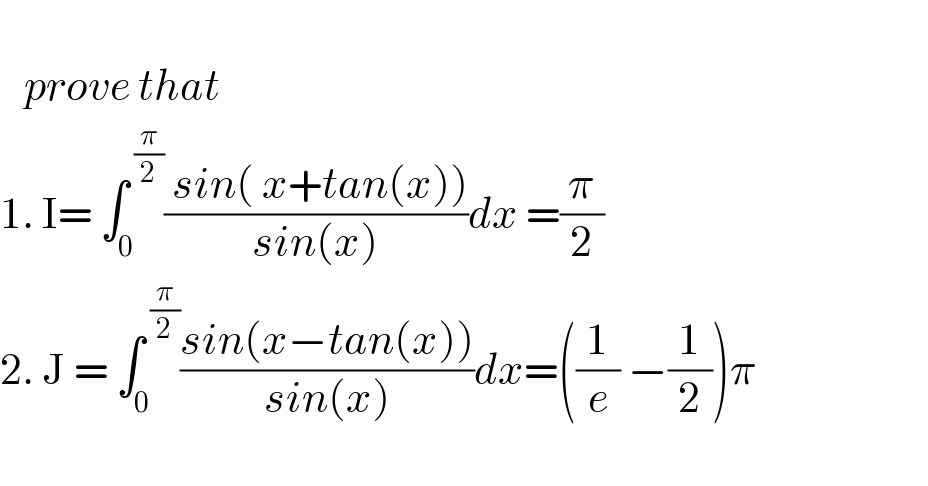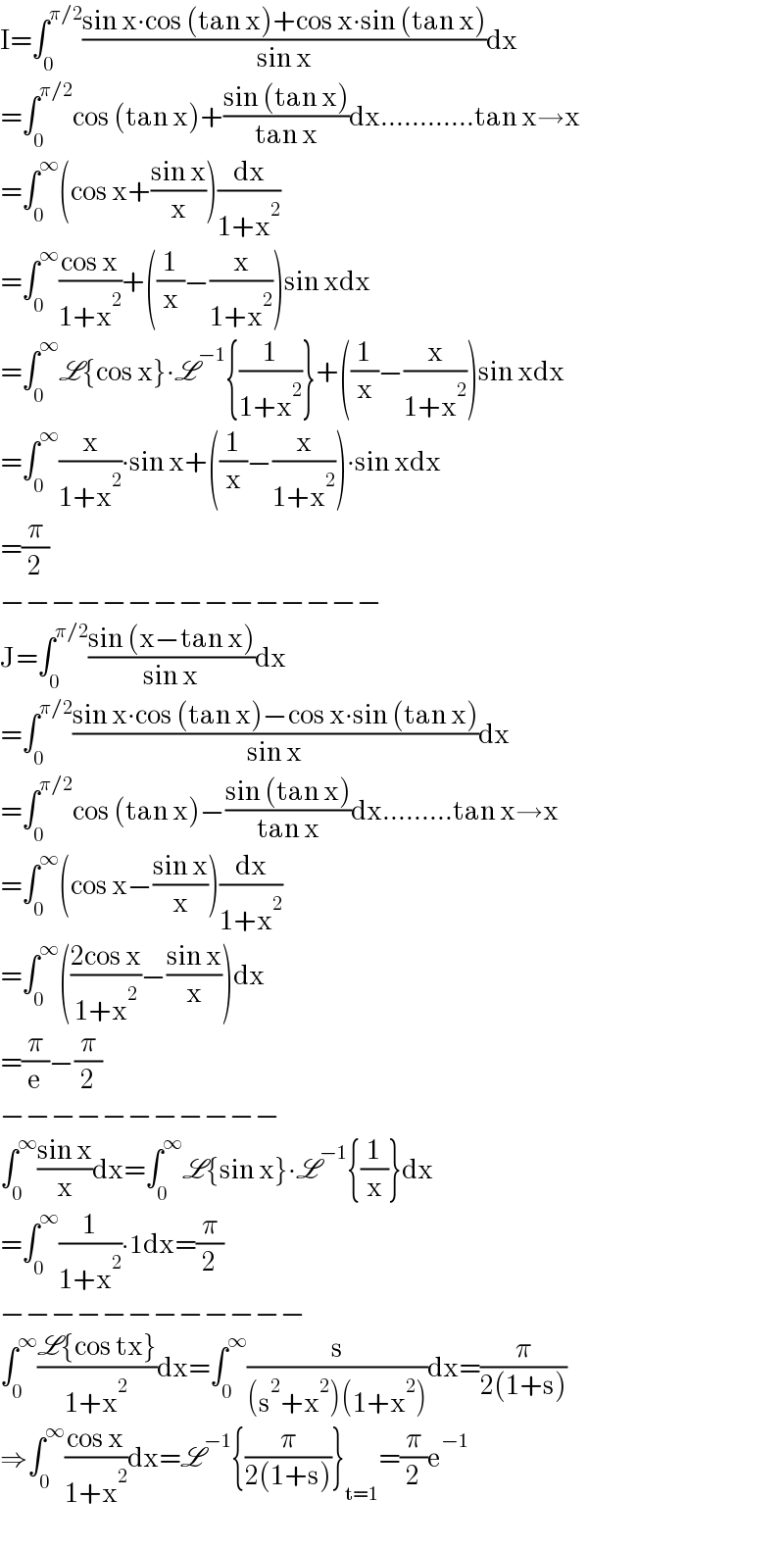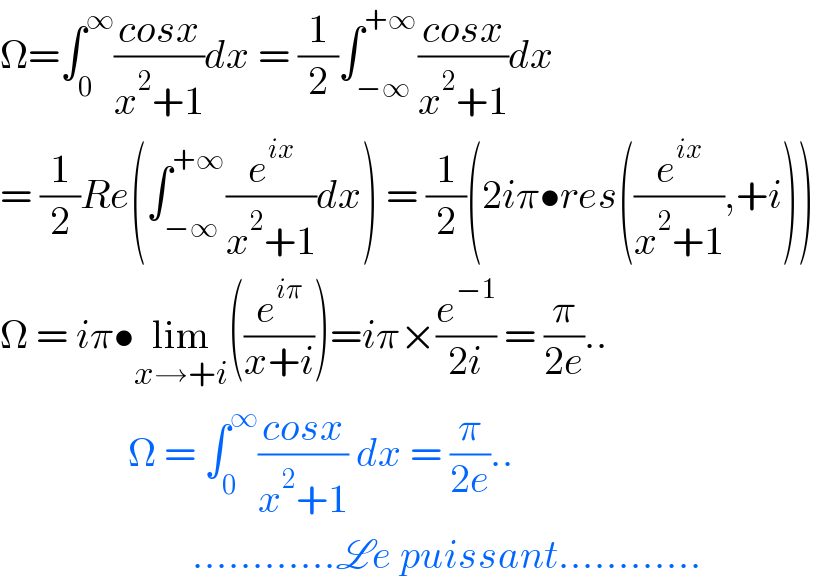
Question and Answers Forum
Question Number 158590 by mnjuly1970 last updated on 06/Nov/21

Answered by qaz last updated on 06/Nov/21

Commented by puissant last updated on 06/Nov/21

| ||
Question and Answers Forum | ||
Question Number 158590 by mnjuly1970 last updated on 06/Nov/21 | ||
 | ||
Answered by qaz last updated on 06/Nov/21 | ||
 | ||
| ||
Commented by puissant last updated on 06/Nov/21 | ||
 | ||